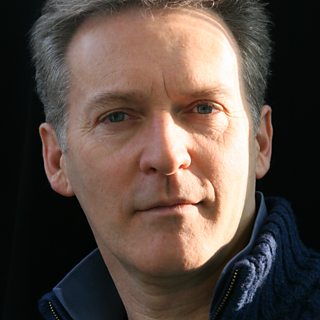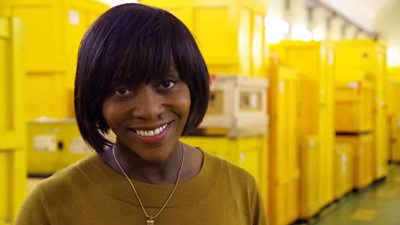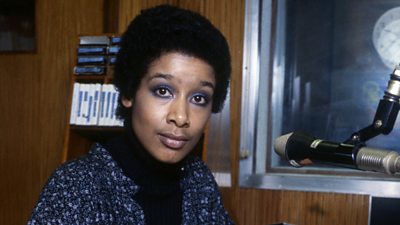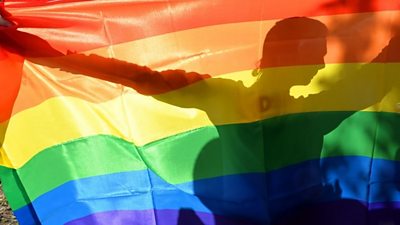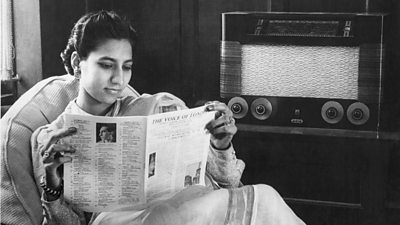We had no researcher, we had no assistant, we had nobody, we were doing ourselves whatever we thought was best or was required.
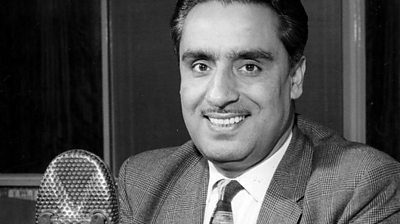
Born in Srinagar in 1922, Mahendra Kaul grew up in Jammu and Kashmir. He tried acting at first, but journalism soon emerged as his real calling and found him working for All India Radio.
In the fifties, he was at Voice of America where he created its Indian services division (1955-60), before moving to the UK.
He joined the ��ѿ��ý in 1961 where he became the face of their Asian Programmes Unit for over 20 years, and was best known as the television presenter of the famous Asian magazine programme, Naya Zindagi Naya Jeevan (New Way, New Life). A regular viewing staple for the Asian community on a Sunday morning from 1968-1982, it was the first broadcast platform defined by and for the Asian community.
The programme focussed on local and Indian subcontinent news as well as big interviews with eminent British politicians - Margaret Thatcher was famously interviewed by Kaul in 1981, having been introduced to her as “the most powerful Indian in Britain”.
The show also attracted music legends such as Ravi Shankar and Beatle George Harrison and popular Bollywood actors. Finally, it offered key information to the Asian community on how to integrate into Britain, and was presented in Hindi/Urdu and English.
Kaul said of the show: “We had no researcher, we had no assistant, we had nobody, we were doing ourselves whatever we thought was best or was required.”
Mahendra Kaul, the face of the ��ѿ��ý’s Asian Programmes Unit for 20 years, was awarded an OBE for Race Relations. He died in 2018.

